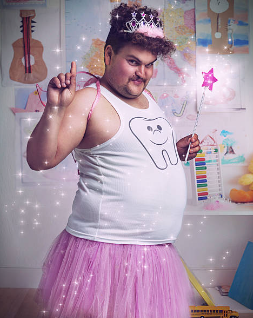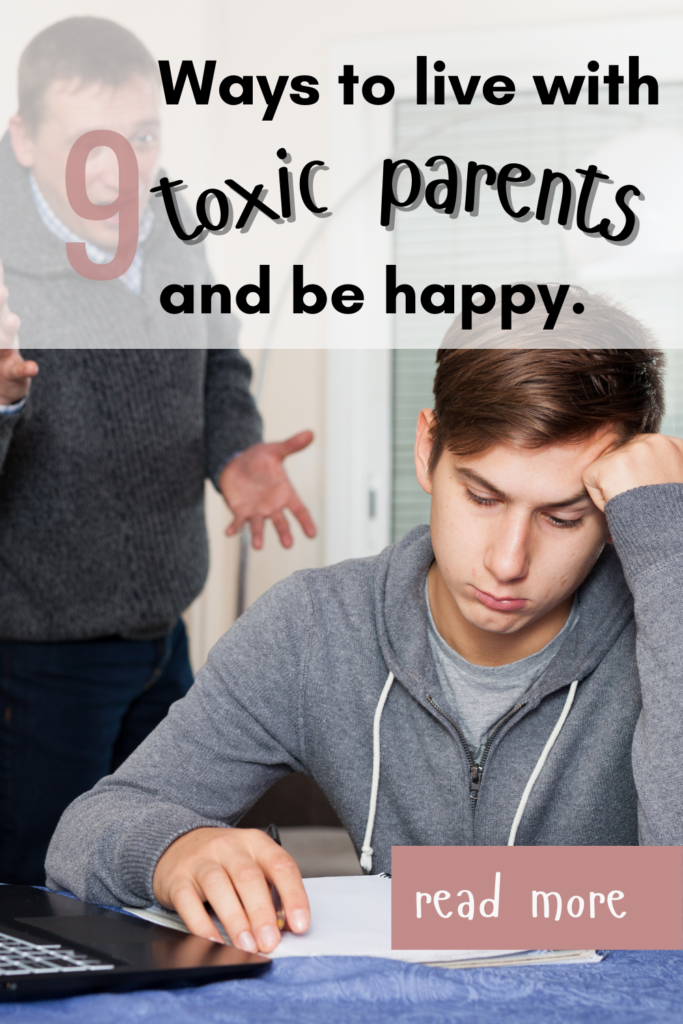Hey there, fellow survivors of the ultimate family drama! Are you one of the many adults who, despite being independent and successful, still carry the heavy burden of a toxic relationship with your parents? Growing up in such an environment can leave deep emotional scars that affect our adult lives but fear not, for you are not alone.
In this blog post, we will explore coping mechanisms and strategies to help you live a better life despite the challenges posed by toxic parents. Let’s embark on this journey together and find ways to reclaim your happiness and peace of mind.
Acceptance: Understanding the Unlikelihood of Change
So, here’s the scoop – toxic parents are as likely to change as a cat is to bark. It’s super important to realize that toxic parents probably won’t change how they act. It doesn’t mean you’re not good enough or that you haven’t tried hard enough; it’s just facing up to the truth. Once you understand this, you can stop wasting energy hoping for something that might never happen. Knowing this can help you concentrate on yourself and your own happiness, no matter what your parents do.
Self-Choice: Recognising the Limitations of Influence
Guess what? You know what? If you want things to change with your parents, it’s got to be their idea, not yours. You can’t wave a magic wand and make them act differently. So, focus on setting boundaries and keeping your life drama-free. Understand that your parents have to be the ones to decide to change.
It’s normal to want a better relationship with them, but remember, you can’t make them change. By setting boundaries and taking care of yourself, you’ll be better equipped to handle this tough situation. Just accept that you can’t make them change and focus on what you can control in your own life.

Personal Happiness: Embracing Control Over Your Own Well-being
You’re the captain of your happiness ship, mate! Despite the parental turbulence, find joy in your victories, surround yourself with positivity, and chase those dreams like there’s no tomorrow. You have the power to make yourself happy, no matter what your parents do.
It’s pretty cool to realise that you’re the one in control of your own well-being. By finding joy in what you achieve, building strong relationships and following your passions, you can really boost your happiness. Focus on the things that make you feel good and you can break free from the negative stuff from your past.
Non-Responsibility: Releasing Yourself from Unwarranted Guilt
Understand that you are not at fault for your parents’ toxic behavior. It’s common for adult children of toxic parents to internalize blame, but it’s important to recognize that their behavior is not a reflection of your actions or worth. Releasing yourself from this burden is liberating and allows you to focus on your own growth and happiness. By acknowledging that you are not responsible for their behavior, you can begin to free yourself from the emotional weight of unwarranted guilt.
Forgiveness: Understanding Forgiveness as a Personal Choice
Forgiveness is like a flavour – it’s your call whether to savor it or not. Just do you, and don’t let anyone pressure you into forgiving your toxic parents if you’re not feeling it. Forgiveness is helpful for healing, but it’s totally up to when you want to forgive or whether you want to forgive. It’s okay if you’re not there yet, and it’s more important to focus on your own mental health than what others think. Take your time and give yourself the freedom to work through your emotions and make choices that are best for you.
Setting Boundaries: Establishing Healthy Limits
Picture this – you’re the superhero guarding your emotional fortress. Set those boundaries, enforce them like a pro, and keep the drama llamas at bay. Setting boundaries is crucial for maintaining your mental and emotional well-being. Clearly communicating your boundaries to your parents and enforcing them with consistency can help protect you from further emotional harm and maintain a sense of control in the relationship. By establishing and maintaining boundaries, you can create a safe space for yourself and minimize the impact of toxic behaviors on your daily life.

Self-Care: Nurturing Your Emotional Health
Time for some TLC (that’s Tender Loving Care, not the ’90s band). Pamper yourself, seek solace in good vibes, and rock that emotional resilience like a boss. Prioritising self-care is essential for those navigating relationships with toxic parents. Engaging in activities that bring you joy, seeking support from trustworthy individuals, and practicing mindfulness can help you manage stress and cultivate inner resilience. By incorporating self-care practices into your routine, you can strengthen your emotional well-being and build a solid foundation for coping with the challenges presented by your upbringing. Read reasons why Self Care should be a priority here!
Seeking Support: Finding Strength in Community
Seeking support from friends, support groups, or a trusted therapist can provide invaluable validation and guidance. Connecting with others who have similar experiences can offer a sense of belonging and understanding, while professional support can aid in processing complex emotions. By reaching out for support, you can build a network of understanding individuals who can offer empathy, wisdom, and encouragement as you navigate the complexities of your relationship with your parents.
Empowerment: Embracing Your Personal Agency
Recognise that you have the power to shape your own narrative and break free from the cycle of toxicity. Embracing your personal agency and making choices that prioritise your well-being can lead to a profound sense of empowerment and liberation. By acknowledging your ability to make decisions that enhance your life, you can reclaim a sense of control and authorship over your own story, independent of the influence of toxic dynamics.
Frequently Asked Questions (FAQs)
Q: Is it selfish to prioritise my own happiness over trying to improve my relationship with my parents?
A: Prioritising your own happiness is not selfish; it’s an essential aspect of self-care. By focusing on your well-being, you are better equipped to handle the complexities of your relationship with your parents.
Q: How can I set boundaries with my toxic parents without feeling guilty?
A: Setting boundaries is crucial for your mental and emotional health. Communicate your boundaries clearly and firmly, and remember that your well-being is a priority.
Q: Can therapy be beneficial for adult children of toxic parents?
A: Therapy can be incredibly beneficial for processing complex emotions and developing coping mechanisms. A qualified therapist can provide invaluable support and guidance.
Q: Is it possible to have a healthy relationship with my toxic parents in the future?
A: While every situation is unique, it’s important to prioritise your well-being and assess whether a healthy relationship with your parents is feasible. Setting realistic expectations and focusing on your own growth is paramount.
Conclusion: Embracing a Brighter Future
Living with toxic parents can be emotionally draining, but it’s important to remember that you have the power to shape your own life. By accepting the limitations of change, prioritizing your happiness, releasing unwarranted guilt, understanding forgiveness as a personal choice, setting boundaries, practicing self-care, seeking support, and embracing your personal agency, you can navigate this challenging dynamic with resilience and strength. Embrace the journey of self-discovery, seek support when needed, and remember that you are worthy of a happy and fulfilling life.
I know you can do this!
Chat soon
Xx







Love this article! I’m sure there are so many young adults that can relate to having ‘toxic’ parents. It’s important to put yourself first, set those boundaries and don’t try to change people especially your parents! They will adapt eventually! They also come from a different Era and we need to be considerate of that. They too might have had ‘toxic’ parent ways, so it’s important to practice patience understanding and support.
Wow, Thank you so much! 🙂 I agree it is important to practice patience. Its so hard but we got to try.